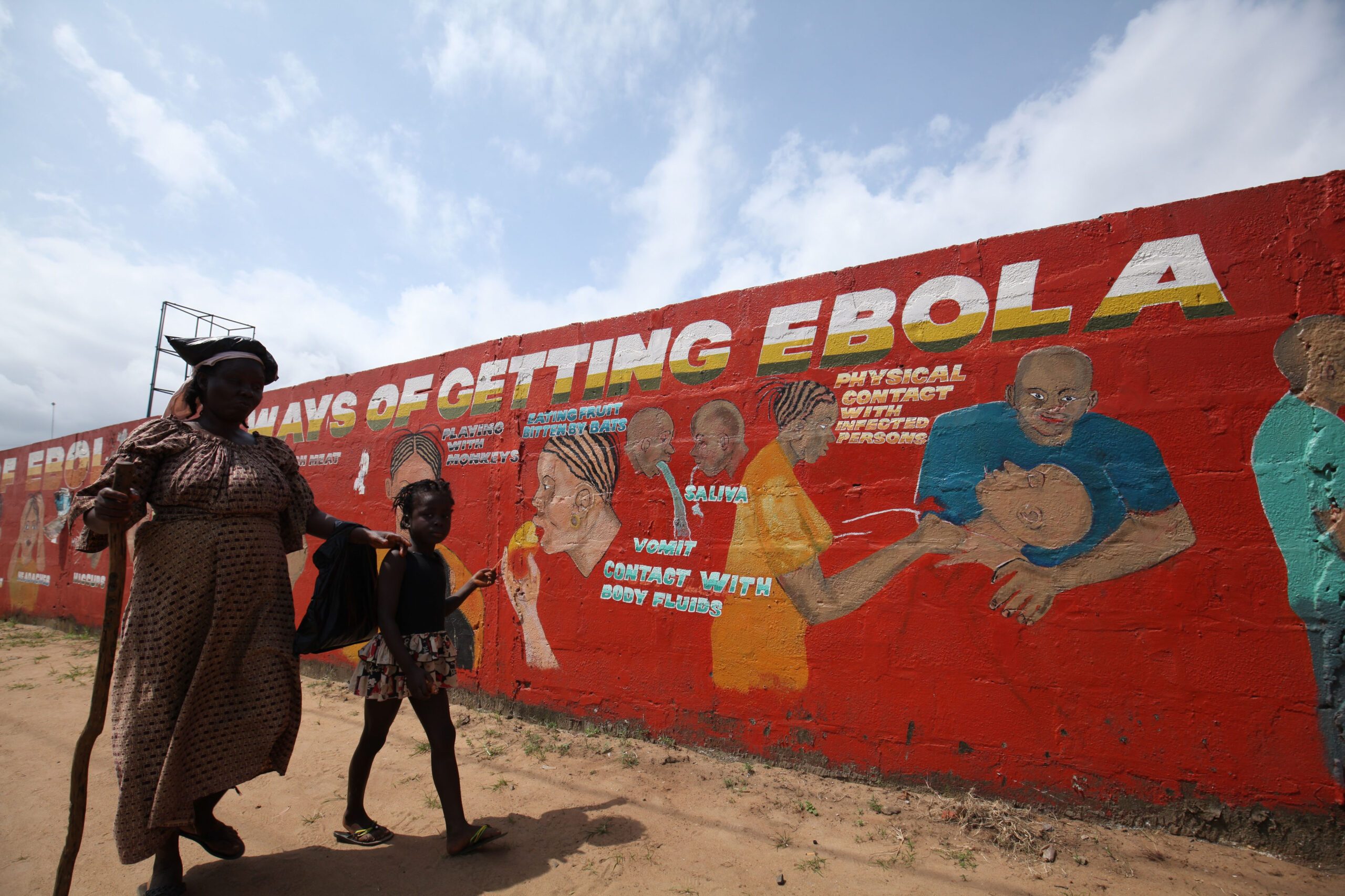SUMMARY
This is AI generated summarization, which may have errors. For context, always refer to the full article.

FREETOWN, Sierra Leone – Gold miner Dauda Kamanda has never been rich, but before Ebola hit Sierra Leone he was getting by selling the nuggets he unearthed to traders who exported them across Africa and the Middle East.
Then, one by one, his Lebanese and Senegalese clients in the northern district of Koinadugu fled as the deadly outbreak gripped the country in 2014, and Dauda’s $500 (460-euro) monthly income disappeared.
“After the buyers fled, I had to take a part-time job carrying luggage at the lorry park for people going to the capital,” he told AFP.
As the world awaits the announcement on Thursday, January 14, that the worst-ever Ebola epidemic has been beaten in west Africa, the 3 most affected countries of Liberia, Guinea, and Sierra Leone are taking grim stock of the devastation wrought on their economies.
The epidemic has devastated the mining, agriculture and tourism industries in the region – already fragile after years of civil war, dictatorship, and coups – where more than 11,000 people died from Ebola.
Strong recent expansion has been curtailed in Guinea and while Liberia has resumed growth, Sierra Leone is in a severe recession, according to the World Bank.
The bank estimates the regional economic damage to have been $2.2 billion over 2014-15 and has mobilized around $1.6 billion for Ebola response and recovery efforts.
Mine closures
Fuelled by foreign investment in its mineral wealth, Sierra Leone had made considerable progress in recovering from a brutal 11-year civil war and its economy grew by 11.3% in 2013.
But Ebola slashed growth to 4% in 2014 and the economy contracted by a massive 21.5% in 2015, according to Finance and Economic Planning Minister Kaifala Marah.
“The traditional growth-driving sectors – agriculture, mining, et cetera – were severely disrupted,” he told AFP, adding that the damage had been exacerbated by a slump in iron ore prices, the main international export.
Around 7,500 jobs were lost by the closure of two mines run by African Minerals and London Mining, which both went into administration.
A World Bank report released last June said employment had returned to pre-crisis levels, although employees were working fewer hours and earning smaller wages.
In Guinea, where small enterprises and the informal economy are heavily reliant on imports, the closing of air borders that accompanied the crisis were crippling.
“I often went to Dubai and Bangkok to buy gold chains and my shop was always well stocked,” businessman Fatou Balde told AFP in Conakry.
“I had a lot of customers, especially among retailers, but now the shelves are empty.”
Growth of 2.3% in 2013 slowed to 0.6% in 2014, although financial institutions expect the Guinean economy to expand by 4.3% in 2016.
In Liberia, 12% of businesses surveyed during the peak of the crisis have since closed down, according to the London-based International Growth Centre (IGC).
Like numerous entrepreneurs interviewed by AFP, 45-year-old Amadou Diallo, who imports goods from Guinea to Liberia, said the closing of borders at the height of the crisis and an exodus of foreign investment had put him out of business.
“After the first outbreak we had to start over. It was hell really. We could no longer go for goods out of the country, we had to survive on the money we had,” he said.
Reason for hope
The US Agency for International Development funded a mobile phone survey of 30,000 people across Liberia and Sierra Leone in the first 6 months of 2015 to find out the impact of Ebola on their finances.
In Sierra Leone 70% said their household incomes had dropped since June 2014 while the figure was 60% in Liberia.
Yet respondents were confident about job markets recovering, in a note of optimism echoed by ministers in Sierra Leone, who expect the economy to stabilize this year and recover strongly to 19.6% growth in 2017.
A further reason for hope, says Dianna Games of South African business consultancy Africa At Work, is the relative good health of the regional economy.
She noted in a recent commentary for the Johannesburg-based newspaper Business Day that growth for the broader Economic Community of West African States is forecast at 7% for 2016.
“Ebola’s effect has been minimal because the 3 worst-affected countries comprise less than 2% of regional gross domestic product,” she said. – Rappler.com
Add a comment
How does this make you feel?
There are no comments yet. Add your comment to start the conversation.